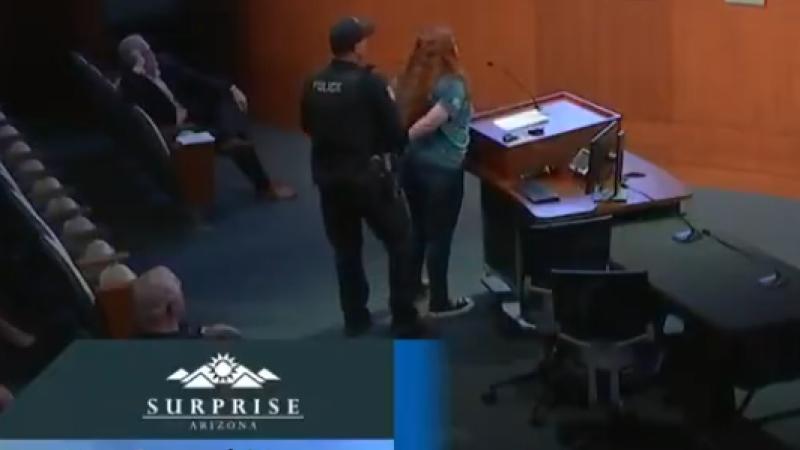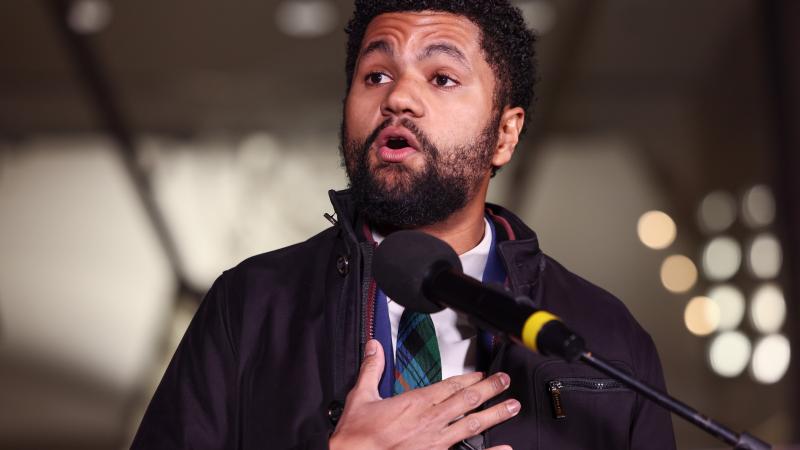City council chills public comment by banning criticism, requiring home address: lawsuit
"Up until recently, meetings were livestreamed and posted online, forcing citizens to broadcast their home addresses to the public," followed by threats, harassment and Satanic Temple correspondence, law firm says.
A North Carolina city that advertises itself as "vibrant and progressive" is exposing its residents to harassment and threats as a condition of public comment at City Council meetings, and censoring those brave enough to speak under a vague speech code that protects council members from criticism, according to a First Amendment lawsuit.
The Liberty Justice Center is representing frequent speaker Lisa Metzger against the city of Monroe, seeking to block and overturn the City Council's requirement that all public commenters disclose their "personal primary residence address or forfeit their speaking opportunity" and a "decorum" rule shielding council members from "direct petition."
Starting with the May 13 and June 10 meetings this year, the public comment signup form required people to give their "exact residential address," a marked change from previous policies that let them use a business address or "any address at all," according to Metzger's motion for preliminary injunction.
The council formally changed the policy July 8 to require them to sign up with "name, street address, city, and state" – specifying in an Oct. 15 update this means "personal primary residence" – and then verbally announce them again when called for comment.
The identification and decorum rules provide a double-whammy of censorship, intimidating would-be commenters against speaking and controlling what they can say "to avoid negative criticism" and addressing council members by name, Metzger says.
"Up until recently, meetings were livestreamed and posted online, forcing citizens to broadcast their home addresses to the public," and Metzger and others "have since faced threats and harassment" and others forfeited their speaking time, LJC said.
It's not clear whether North Carolina public records law shields personal information stated during public comment from disclosure. Attorney General Jeff Jackson's FAQ page focuses on what can be divulged about government personnel.
“The City of Monroe recognizes the importance of First Amendment rights and encourages open, respectful dialogue within the City," Communications Supervisor Jason Puckett told Just the News in an email. "The City will review existing rules and recommend any proposed updates that may further support these principles."
The People United for Privacy Foundation, which promotes legislation for individual privacy rights to protect free speech from harassment and political violence, told Just the News it hasn't been involved in efforts regarding Monroe's City Council rules, but "those kinds of policies are one of the big concerns for privacy and free speech in local government right now."
Last month, the foundation released a model policy to protect campaign donors from political violence by redacting home addresses and employers from public disclosure in state campaign finance databases.
"At a time when political tensions are rising and some have even resorted to violence to silence their enemies, requiring speakers to announce their home address at city meetings is dangerous," foundation spokesperson Luke Wachob wrote in an email. "People have a right to speak to their representatives without risking retaliation at home."
Wachob noted that during his time at the Institute for Free Speech, the public interest law firm secured an injunction against a similar policy that forced disclosure of home addresses as a condition of speaking at Pennsylvania's Pennsbury School Board meetings.
'Death threats' and Satanic Temple correspondence followed
LJC's lawsuit alleges the rules violate First Amendment rights to free speech and petition as incorporated through the 14th Amendment, chilling the speech of public commenters and subjecting them to "unconstitutionally over-broad and vague" content rules.
The decorum rules prohibit "rude," "abusive" and "insulting" comments, "public ridicule," "personal attacks" and "yelling," giving the presiding officer discretion to cut off or eject speakers using law enforcement, according to LJC. City officials have used them to "interrupt, sanction, and eject" speakers who even "raise uncomfortable topics."
After Metzger reluctantly gave her business address to keep her speaking time at the July 8 meeting, she received "death threats, correspondence from the Satanic Temple, and other intimidating communications from various sources on social media," and the same happened to her friend Michelle Ball after sharing her address in order to testify, the suit says.
William Wolfe forfeited his speaking time at the July 8 meeting, telling council members "I'm not going to endanger my family or my small children by putting my home address out here, and, forever online on YouTube." (Much of the suit recounts Metzger's observations of other speakers at meetings.)
A month earlier, the council censored Ball after she "questioned whether a freedom of information request would reveal child pornography stored on a city council member’s government issued mobile phone or computer," the suit says.
A majority approved a sudden recess, and 12 minutes later, Ball was "chastised for alleging that a City Council member may possess illegal materials on their government issued devices, told to not disrupt the order of the meeting, warned to not to raise her voice, and told to not speak again" on the subject, according to the suit.
At that June 10 meeting, Ball and Jen Sanders shared the consequences of disclosing their residences as the signup forms required, including threats against Ball and her "children’s physical safety" and in-person harassment at Sanders' home. The council sanctioned Sanders for calling the mayor’s associates "goons" who were "spreading lies and causing trouble."
Law enforcement ejected Ball from a Sept. 23 meeting to stop her from "petitioning and negatively criticizing a city council member directly by name," the suit says.
The Facts Inside Our Reporter's Notebook
Links
- advertises itself as "vibrant and progressive"
- First Amendment lawsuit
- city council's requirement
- Metzger's motion for preliminary injunction
- Jeff Jackson's FAQ page
- People United for Privacy
- model policy to protect campaign donors
- similar policy that forced disclosure of home addresses
- July 8 meeting
- June 10 meeting
- Sept. 23 meeting















